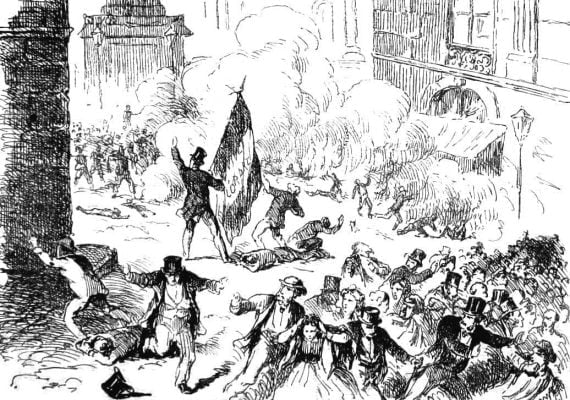Inspired by a recent article in the In Defence of Marxism magazine, I attended a performance of Faust at the Royal Opera House.
While Goethe’s original is a monument to German Romanticism and embraces the ceaseless human drive for all the world has to offer, Gounod’s operatic version strips it of its soul – leaving nothing but a reactionary celebration of Catholicism and the French State.
Goethe wrote Faust in 1808. The Enlightenment, the ideological reflection of the rising bourgeoisie, had spread rapidly throughout Europe.
The conditions for such literary and philosophical achievements had been completely overthrown, however, when the Frenchman Charles Gounod turned Faust into an opera in 1859.
Louis Napoleon had crushed the rising proletariat just seven years earlier. France was now under a dictatorship and all state-sanctioned art – of which opera, by its very nature, could be nothing less – had to praise the military, the state and religion.
The eternally restless Faust, who finds nothing but scorn for the straitjacket of scholastic studies and longs to embrace the whole world, is transformed into a sex-crazed maniac.
The wit and nuance of Mephisto dissolves into a cartoon villainy. Discussions of philosophy are out, mindless waving of the imperial tricolour is in.
For Goethe, salvation is achieved not just through moral purity and repentance, but by embracing the world wholly. Gounod rejects this outright, condemning Faust to hell for his wretched ways.
 The moral message in Gounod’s opera is clear. Girls are to be pious and chaste, boys to be obedient little soldiers, and professors are to remain in their dusty ecclesiastical studies.
The moral message in Gounod’s opera is clear. Girls are to be pious and chaste, boys to be obedient little soldiers, and professors are to remain in their dusty ecclesiastical studies.
What could please Emperor Bonaparte more?
Too bad for him, the workers of Paris would embrace Goethe, not Gounod, when they stormed heaven itself and established the Paris Commune just twelve years later.
A recording of a 2019 production of ‘Faust’ is available to stream on the Royal Ballet and Opera website with a subscription.






